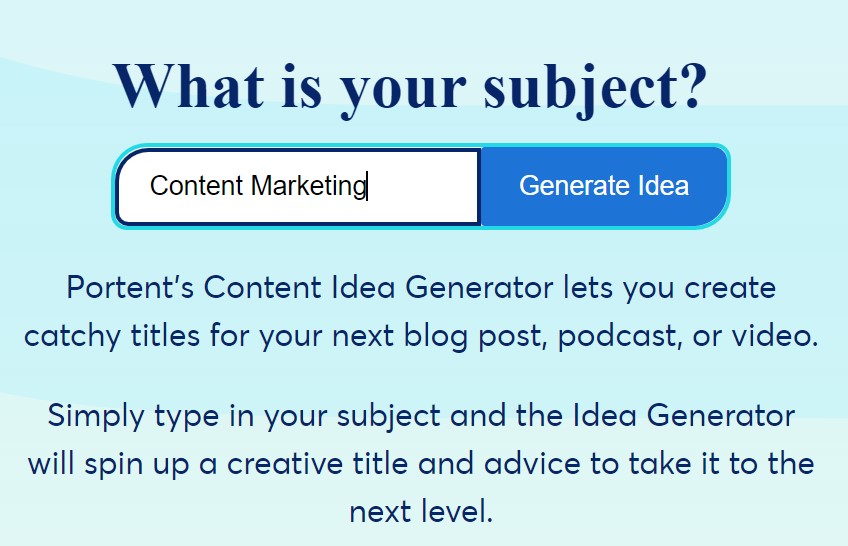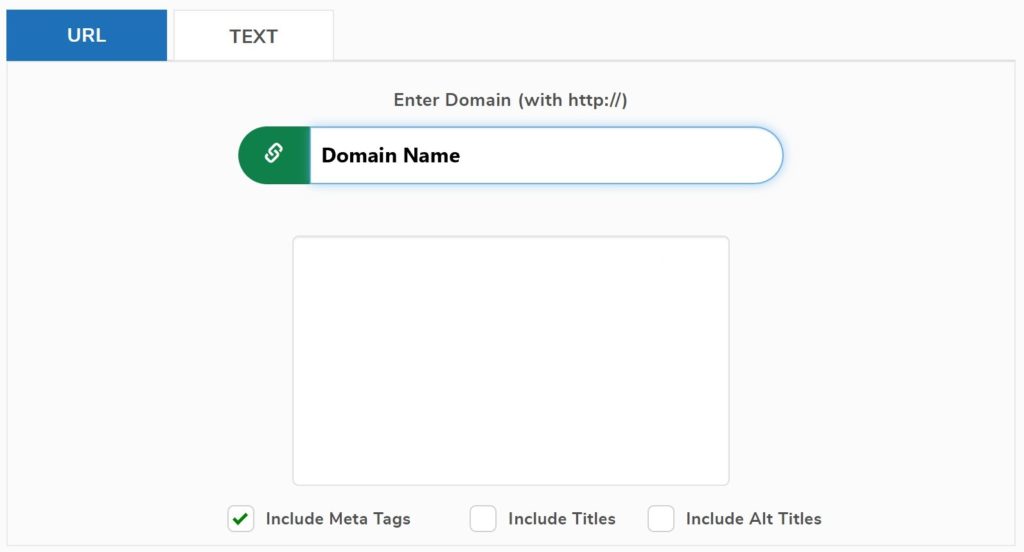For a digital marketer, generating content can be a grueling, time-consuming process.
It requires continually coming up with unique, compelling angles to get clicks, capture leads, and convert them into customers.
But, without using the right platforms, visitors will quickly abandon your page without a second thought.
To ensure your copy gets you the results you want, we’ve put together a comprehensive list of the top 11 content creation tools you can leverage right now to grow your online presence.
What We’ll Cover:
-
Why Content Creation is Critical for SEO
-
BuzzSumo
-
Evernote
-
Content Studio
-
SimilarWeb
-
Content Idea Generator
-
Scoop.it
-
BrightEdge
-
Grammarly
-
Keyword Density Checker
-
Yoast SEO
-
Optimizely
Why Content Creation is Critical for SEO
Before we jump right into the list, it’s important to note what makes SEO content an invaluable part of your marketing strategy.
Think about it this way—Google processes more than 3.5 billion searches per day, which equates to 40,000 search queries per second.
Content that’s optimized for search engines cuts through all the noise and attempts to establish high relevance in Google’s ever-changing ranking criteria.
While writing engaging SEO copy is half the battle, content research tools will put you on the fast track towards driving traffic and proving your company’s authority.
Without further adieu, here are our top content creation platform picks.

Google Searches a Day and Search Queries Per Second
BuzzSumo
If you’re curious about new content trends and developments in your industry, look no further than BuzzSumo.
BuzzSumo is a search engine that streamlines the entire content research process. It does so by using keywords and other data points to identify which types of content are performing well online. You can even experiment with different filters to further refine your search.
Want to find out what’s being shared across social media channels? Maybe you’re trying to keep up with the influencers and industry leaders in your area? Perhaps you want to see what your competitors are up to?
All of these actions can be taken on BuzzSumo.
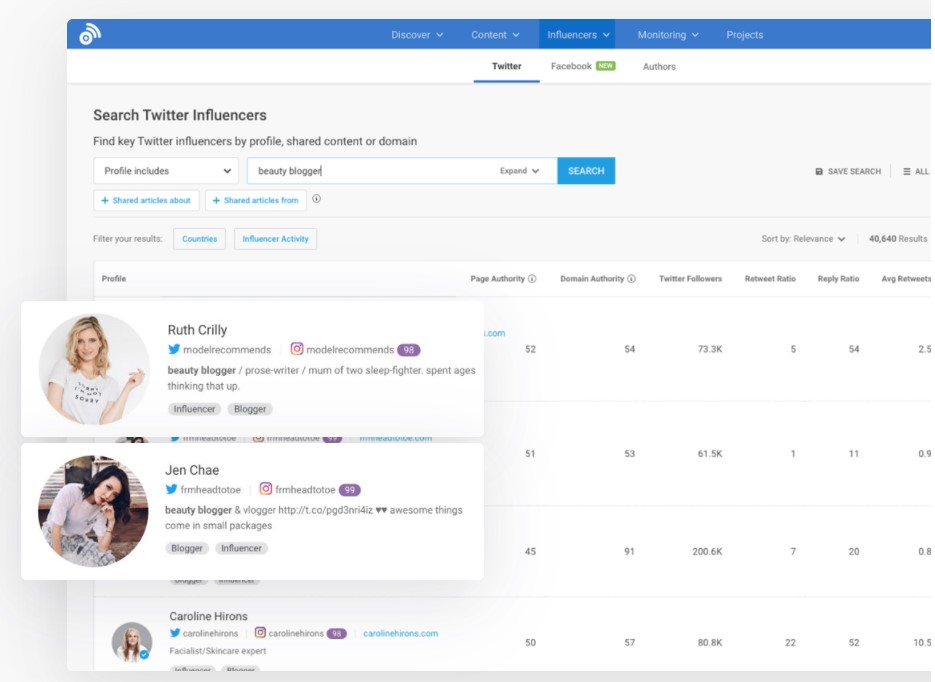
BuzzSumo.com Influencer Tool
Evernote
While many people still prefer post-its, notepads, and other old-school methods of keeping track of their daily tasks, having a solid note-taking app like Evernote might spare you constant hassle.
The best thing about Evernote is that it works on pretty much every device, including iOS, Android, Mac, and Windows and automatically syncs as long as you have a reliable internet connection.
From to-do lists and research notes, there are plenty of note-creation tools that have been proven to be useful at each stage of the writing and editing process. You can embed pictures and audio, review edits of others, and set reminders to receive in-app notifications.
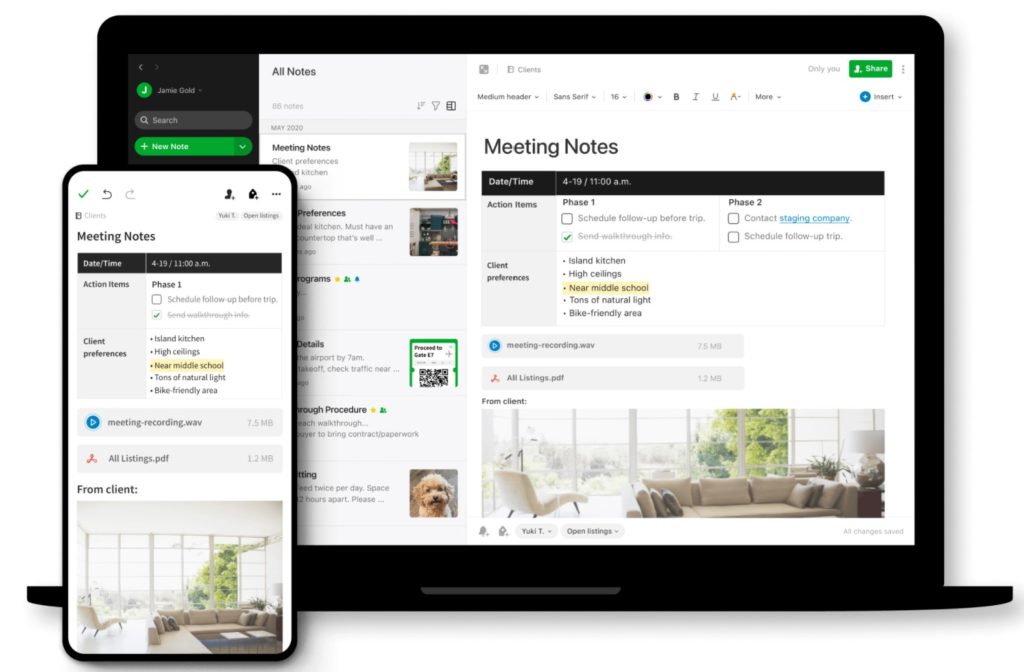
Evernote Note-Taking Tool
Content Studio
ContentStudio is an all-in-one cloud-based platform that helps brands, agencies, and startups discover, publish, and track their content marketing efforts.
Features span engagement tracking, multi-account management, post scheduling, drag and drop embed, and social media monitoring. The planner features an easy-to-use calendar, a publisher that helps plan content deliveries, and analytics that make reporting on marketing performance easier than ever.
Plus, you can even gain insight into how a piece of content has fared historically for a specific keyword or topic.
When it comes to publishing killer content, Content Studio checks all the boxes.
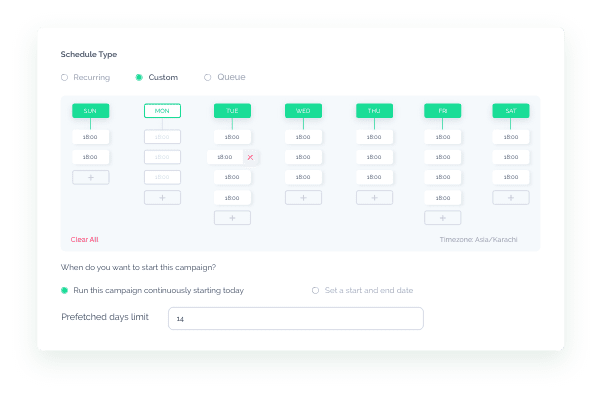
Content Studio Social Media Scheduling Tool
SimilarWeb
Analyzing more than 3 million mobile apps and 80 million websites, SimilarWeb’s mission is to empower users with the insights needed to “win your market” as they put it.
Essentially, SimilarWeb is a website analysis tool where you can get insights into information like your competitor’s top-performing pages, keywords they’re ranking for in Google, and how much traffic they’re receiving every month.
Equipped with this data, the goal is to start optimizing your content and benchmarking your SEO performance to outperform others in your industry.
The company’s top customers include tech powerhouses like Google, Microsoft, Omnicom, and Alibaba.com.
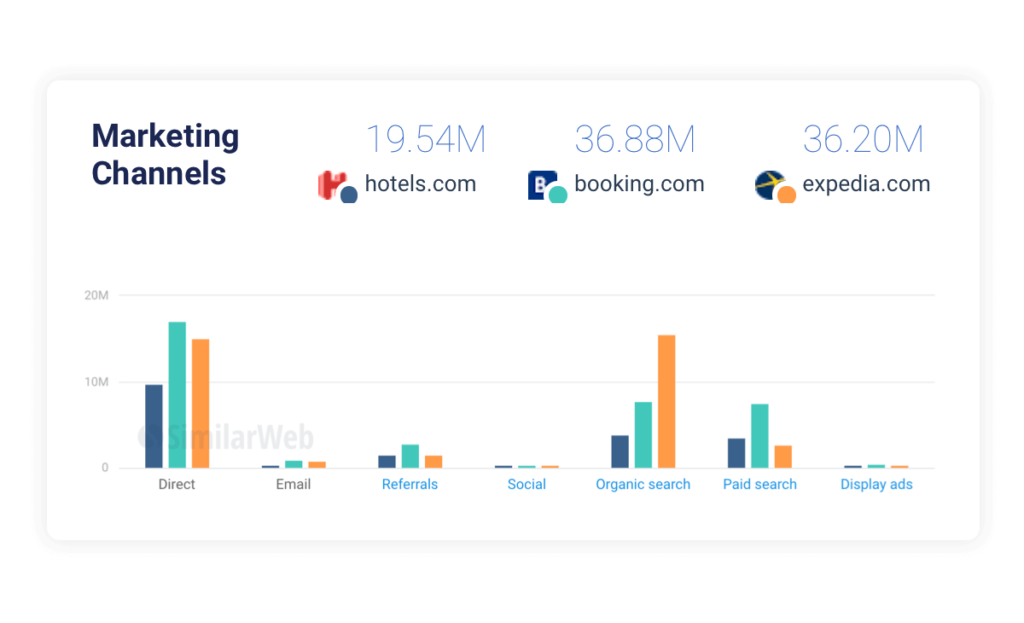
SimilarWeb Competitor Analysis Tool
Portent Content Idea Generator
Portent’s Content Idea Generator is one of the best content creation tools on the market, particularly when it comes to headlines.
According to Copyblogger, 80% of site visitors read headlines and only 20% actually make it to the end of the article.
That’s what makes Content Idea Generator so useful. It basically brainstorms different blog post titles for you in seconds.
For example, if you wanted to write a piece on content marketing, just enter “content marketing” into the search bar and see what the app comes up with.
If you don’t like the suggestion, just click “See Another Title” and the page will refresh and present a new title recommendation.
Rinse and repeat until you eventually find one you like!
Scoop.it
Founded in 2011, Scoop.it has helped over 8 million users publish millions of pieces of content.
Scoop.it is part content curation platform and part social network. With it, you can monitor sources globally and curate content from a variety of third-party sources like niche magazines and mainstream media outlets.
Distribute it automatically on your blog or social media platform of choice or review it internally with your team.
Scoop.it has gained so much traction over the years that it has been featured in publications like Forbes, Mashable, VentureBeat, and TechCrunch.

Scoop.it Sharing Permissions
BrightEdge
With more than 1,700 customers worldwide, BrightEdge defines itself as “The industry’s first and only SEO solution to give marketers real-time research, recommendations, and rankings–everything an SEO needs all in a unified platform.”
This is considered one of the best content marketing tools out there because it shows you the intent behind search queries, in addition to guiding content creation and optimization.
It converts online content into real business results like engagement, traffic, and sales via its one-of-a-kind SEO platform. This platform enables brands to predictably plan and measure campaigns using data collected from BrightEdge’s Content Performance Marketing feature.

BrightEdge Customer Journey Tracing
Grammarly
If you write and publish content online, chances are you’ve heard of Grammarly. With nearly 20 million daily users, Grammarly has been helping people avoid errors since 2009.
While there’s no match for human editors, typos and grammar errors can manage to creep into anyone’s writing. And you don’t want to find out about those errors after hitting “send” on an email or newsletter, investing in an app like Grammarly will keep your writing mistake-free.
The app can detect both basic and advanced punctuation errors including run-on sentences, spelling mistakes, fragments, comma splices, and alliteration. It also scans your entire document for any instances of plagiarism.
Perhaps Grammarly’s most underrated feature is offering suggestions on writing style like sentence length, flow, and overall readability.
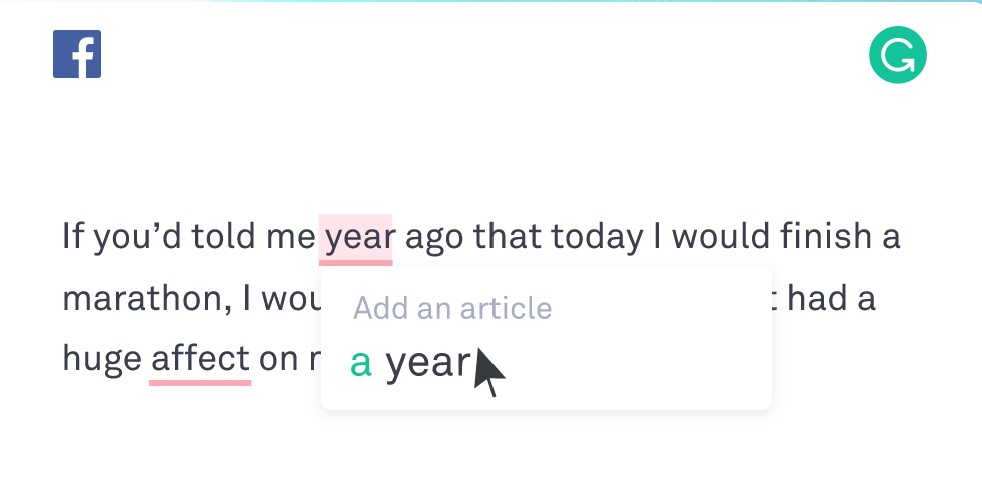
Grammarly Grammar Correction Tool
Keyword Density Checker
If you want your copy to rank high in search engines, keywords are a must—in moderation, of course. Excessive overloading of keywords in SEO content is commonly referred to as “keyword stuffing,” a practice that should be avoided at all costs as Google is known to dole out penalties on sites that do so.
Content creation tools like Keyword Density Checker help you stay within the bounds of acceptable keyword density.
Just enter text or page URL, and the Keyword Density Checker will analyze how many keywords are on a particular web page similar to the way a search engine would.
This tool is not only helpful when checking to see if your page is over-optimized, but for performing competitor keyword research as well.
Yoast SEO
Most content marketers have used WordPress at one point in their careers. In fact, it is one of the most used content management websites for website content creation.
If you’re currently a WordPress user, then be sure to check out the Yoast SEO plugin.
Once installed, Yoast works by analyzing the readability and SEO-friendliness of your writing in real-time. It gives you both positive and negative feedback, which has proved to be helpful for content marketers.
For example, Yoast will tell you how good your subheading distribution, paragraph length, and sentence length is, while making suggestions on how often you should use passive voice and transition words.
This checklist of objectives will ensure that your content is readable and optimized for SEO.
RELATED: The Best Yoast SEO Plugin Settings (The Quick and Dirty Guide)
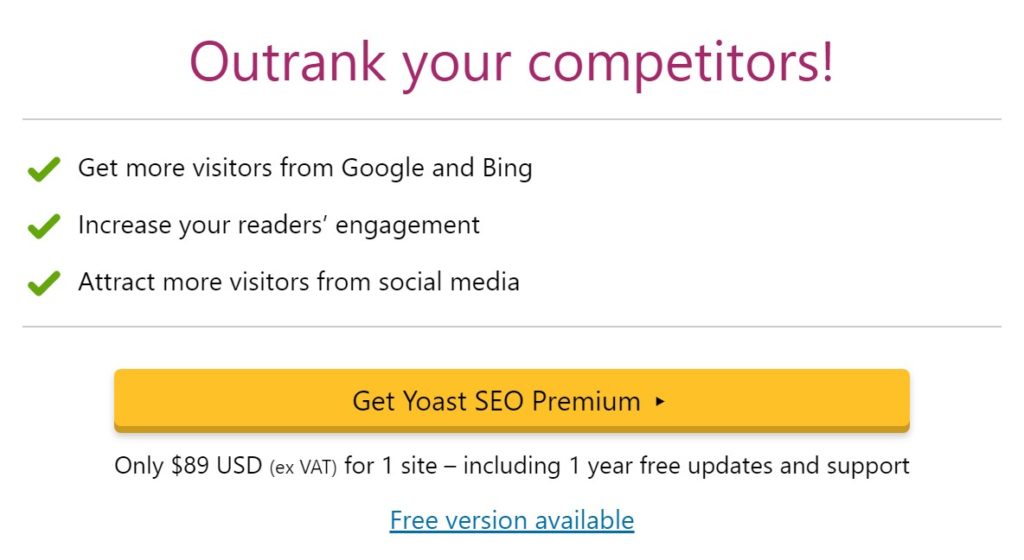
Yoast SEO Tool
Optimizely
If you want to make the most out of your content marketing strategy, consider adding Optimizely to your list of content research tools.
Optimizely features a complete set of digital experience optimization technologies powered by its experimentation software. These technologies include AI-powered personalization, which covers A/B testing, multivariate testing, and server-side testing.
Accordingly to the organization, “by replacing digital guesswork with evidence-based results, Optimizely enables product and marketing professionals to accelerate innovation, lower the risk of new features, and drive up the return on investment from digital by up to 10X.”
Some of the world’s biggest global enterprises choose Optimizely to take their digital experiences to the next level, including Gap, eBay, IBM, FOX, StubHub, The Wall Street Journal, and The New York Times.
Wrapping Up
The reality is that in the digital age if you’re not consistently churning out high-quality SEO content, you risk losing your audience to competitors.
But, optimizing your online content doesn’t have to be a headache.
The content tools and resources mentioned in this post can help you get your ideas organized, improve the readability of your copy, and sharpen your keyword density skills.
Before you know it, you’ll start driving double the traffic to your site and catapulting your content engagement rates.
